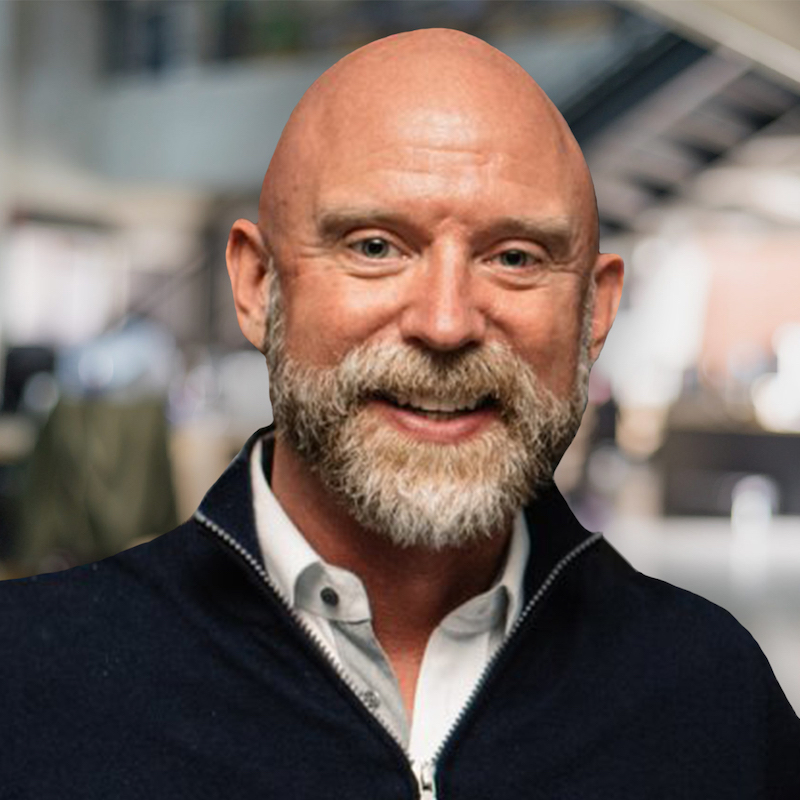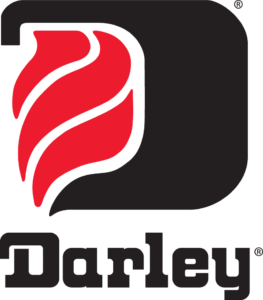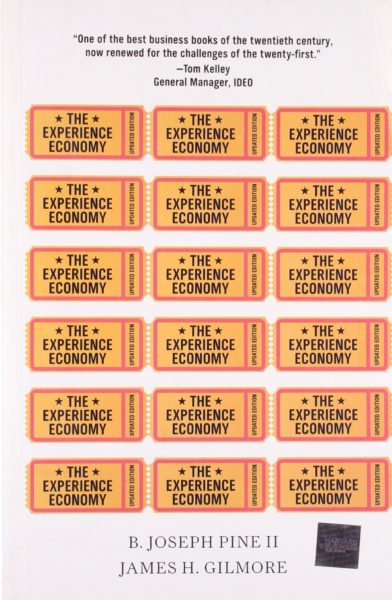
Patrick Bryant is a serial entrepreneur, professional speaker, and co-founder and CEO of software product agency CODE/+/TRUST. After co-founding Go To Team, Patrick launched six multi-million-dollar companies, in media, and software. Patrick shares wisdom gained from his experience in start-ups, his origin as a journalist, what he accomplished in video, and the CODE/+/TRUST “BHAG” for powering startups around the U.S. He discusses culture, scaling, storytelling, and how the first thing for an entrepreneur to do is to start.
Key Takeaways
[1:15] If you have listened to every episode of The Leadership Podcast, please contact Jan and Jim to let them know. They would love to hear it and there might be something in it for you!
[2:27] Most people don’t know that Patrick owns a rolling paper company that he started after investing in a cigar company. Most people know him from software, media, and other things, like speaking.
[3:40] Patrick’s always getting into unexpected situations. He just keeps showing up for work and looking for interesting things. He’s curious and asks questions. His original profession was journalism and he learned to study industries and areas of interest to him. Many times, it results in a business idea. When he sees an opportunity, he strikes it.
[6:07] Patrick believes entrepreneurship is the number one change agent in the world. It is amazingly helpful to society to do something new and do it right.
[7:19] There are businesses that are built to scale and others that are not. In a field, you may have grass, bushes, and a large oak tree. The large oak tree did not start as a blade of grass! It takes time to know the “species” of businesses. Patrick started the video company, Go To Team, 25 years ago. It has 16 offices around the U.S. It hit a $1 million valuation when it was 10 years old. That felt great to Patrick!
[8:43] Another company that started the same week as Go To Team is Google. In 10 years, Google had been publicly traded and people were using its name as a verb! Patrick wondered what he was doing wrong. He started to study innovation scale — how to build companies and products that are built to move quickly in a big way and be sold around the world. That pushed Patrick toward software.
[9:58] Scaling is different between software and service companies. A service company can go a long time with continued operation, but not a lot of growth. A software product requires investments and a certain level of sales. If the sales don’t come, it’s over. The money’s gone and the investors aren’t going to pour more money into the company. There is risk involved in software.
[12:43] Journalism, television, and all media have changed greatly since the start of the internet. There is confusion and fragmentation. Patrick foresees us slowly getting back to moderation and looking for experts and gatekeepers we can trust to provide us with the content we want in the way we want it. We don’t yet have the new Walter Cronkite or Tom Brokaw.
[15:39] Patrick’s company, CODE/+/TRUST, sells code and trust. They help people start software companies. Their “BHAG” is to power 500 software startups in every state in the U.S. and be an official software development firm for entrepreneurs. They want to connect with good ideas, spend a lot of time on them, grow them, feel good about what they produce, and help entrepreneurs make money.
[18:41] First and foremost, get one thing right. You can have multiple ways to attack a problem but you can only have one mission. The mission and values cannot change.
[19:15] Patrick is working on a TEDx speech for March on the schizophrenic nature of advice to entrepreneurs. For instance, Winston Churchill’s message of never giving up contrasts with the advice to fail fast. All leaders need to understand this: mission and values do not move. We are not giving up on our mission. Tactics and goals that don’t get us there need to be stopped.
[21:51] Patrick’s big “Aha” moment is that not all advice is equal. Advice from your Grandma on how to live a good life might be great, but her advice on how to run your business might not be great. Where does the advice come from? How does it work with your core values?
[23:14] Advice can be great for one individual that’s not great for the next one. Patrick is a value investor. He likes to buy stocks that are low, for the long term. That’s what he reads about. Blogs about day trade opportunities are not useful advice for him. Patrick says that if every CEO learned the right way to take advice, they would be the last 10% of “amazing.” It’s one of the hardest things.
[25:34] Patrick separates User Experience from Customer Experience or navigating the software from working the sales funnel. Patrick focuses on providing customers with what they need, not what they want. Henry Ford said that if he asked his customers what they wanted, they would have said, “a faster horse.” We have to have the view that we know some things about where the customer wants to go.
[27:05] Patrick’s business partner, CTO at CODE/+/TRUST, does software design. He’s opinionated and will stand his ground in a positive way with customers because he believes he knows where the customer is trying to go. Designers must come to the discussion with views on what they believe for the customer. Patrick shares the surprising results of a Lay’s Potato Chip survey and taste test.
[28:59] The Lay’s experience illustrates the way that we have to come to the process, which is customer first, but educated on how to make it as simple and clean and smooth an experience for them as possible, almost regardless of what they think.
[30:38] Event.gives is a company of Patrick’s in the non-profit space. Attendees fill out their profiles and can then move from event to event without re-entering their data. Nonprofits argued that it is their data, but Patrick points out that individuals own their data, and they are the ones with the right to release it to the non-profit. Always go back to the individual and what their rights and choices are.
[33:20] Software and media for kids have the added responsibility of providing them with reasonable opportunities for learning. Patrick always tries to start at the core mission, protecting people’s privacy, and allowing them the right to control their data.
[34:53] As a journalist, Patrick learned that it’s all about telling stories. Master storytellers influence in positive ways. The slogan for Go To Team for years was Passionate Storytellers. Storytelling is a helpful skill that allows you to communicate the data that you want and to emotionally connect with people. The goal is to be ordinarily extraordinary in your storytelling so people connect with your message.
[36:29] Patrick explains how to use storytelling to make products socially contagious by connecting the brand to the customer’s lifestyle.
[37:32] Do not put your story in an email! How you tell your story depends on who the audience is. Patrick has run a video company for 25 years. He recommends using video to tell your story. It connects to people in a much more important way than the written word. Engaging with people in person and telling your story on stage is incredibly emotional and powerful. Connect with people in person.
[39:30] Making people laugh and tugging at their heartstrings brings them along with the story. Use emotion to motivate people, educate them, and make them get excited.
[41:59] Patrick refers to himself as a made entrepreneur. He doesn’t have to go to work tomorrow and his basic life needs will be taken care of. Like many of his peers and friends, Patrick enjoys the fight. He enjoys being in the company. He enjoys starting new things. He enjoys the idea stage and helping others and finding connections with the product-market fit. He keeps coming back for that super joy.
[42:55] When a company gets to have between 10 and 20 employees and people start asking Patrick about policies, that’s his sign to go and start a new company. He doesn’t want to write policies and procedures around when you get off of work and what days are holidays. He doesn’t think that way. Starting another company re-energizes him to go attack the next idea.
[43:51] As Patrick grows a company, and adds people, he’s thrilled by it. He loves it. The mission still stands and the values are great. He can’t wait to see the team execute on the goal. But it’s no longer energizing for him. Starting the rollercoaster over is what he loves.
[45:27] Patrick’s closing thoughts, to anyone in a transition stage, just get started. Look for something that you can develop expertise in. What one thing can you do to sell that expertise and move forward an idea in that particular industry, right now, today? “That’s my core advice, just get started.”
[47:59] Closing quote: Remember, “Trust is the glue of life. It’s the most essential ingredient in effective communication. It’s the foundational principle that holds all relationships.” — Steven Covey
The Leadership Podcast is sponsored by W.S. Darley & Company.
Founded in 1908, Darley remains a family owned and operated business, providing the highest quality equipment solutions to our country’s warfighters and firefighters.
Learn more at darley.com and darleydefense.com
Quotable Quotes
“Well, I don’t know how you could follow my path. I had the interesting time of being on the Mall two years ago, here in Washington D.C., where I am today, for January 6. I think of myself as a little bit of a Forrest Gump. I don’t… Share on X “I’m just curious. I ask people questions. As a journalist for many years of my life, … I just learned to study and get my head around industries and areas of interest of mine. And many times, that results in a business idea. And… Share on X “Just start something, just talk to someone, just learn what someone needs. … I just don’t understand why entrepreneurs … can’t just take an opportunity and run with it. … So that’s my number one piece of advice … find something… Share on X “I believe entrepreneurship is the number one change agent in the world. I say it on stages around the United States. I just believe that as entrepreneurs, we are doing something profound and exciting when we are developing a new… Share on X “The best way to make money is to make somebody else more money. That, to me, is where relationships come in and you’re helping someone move forward as an entrepreneur.” Share on X “If you show up to help other people and do the good, right thing, you will have business for as long as you can see it because people will acknowledge and trust you and want to work with you on what they need.” Share on X “You can have multiple goals; … multiple tactics; … multiple ways that you’re attacking a problem but you can only have one mission. You can have core values that support how you’re going to move forward with that mission. The… Share on X “Advice can be great for one individual that’s not great for the next one.” Share on X “The way that we have to come at the process … is, customer first, but educated on how to make it as simple and clean and smooth an experience for them as possible, almost regardless of what they think.” Share on X “With storytelling and laughter, camaraderie, and building a culture that people really want to be there; they really want to help move the mission forward, you can get people going 60, 70 miles per hour without a lot of effort.” Share on X “Every time I get to a place of success, I immediately start thinking, ‘Man, it would be cool to go back to the beginning. How can we do this again?’ It’s just so much fun to start the rollercoaster over!” Share on X
These are the books mentioned in our discussion with Patrick.
Resources Mentioned
- Sponsored by: Darley.com
- Rafti Advisors. LLC
- Self-Reliant Leadership. LLC
- Patrick Bryant
- CODE/+/TRUST
- Go To Team
- Shine Rolling Papers
- Monica Lewinski
- Liberty Fellowship
- The Aspen Institute
- Walter Cronkite
- Tom Brokaw
- BHAG
- Colin Gray at Purdue
- Joe Pine
- Jim Gilmore
- Lay’s Potato Chips
- Event.gives
- Seth Godin
- EBITDA





Recent Comments